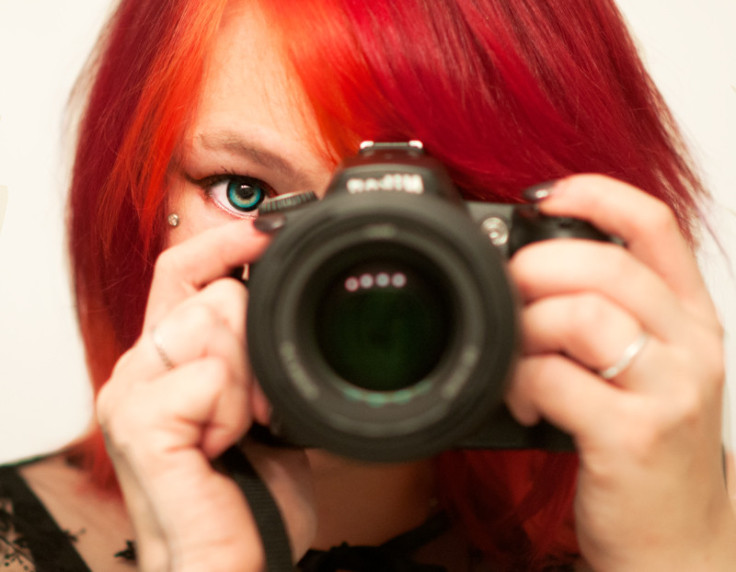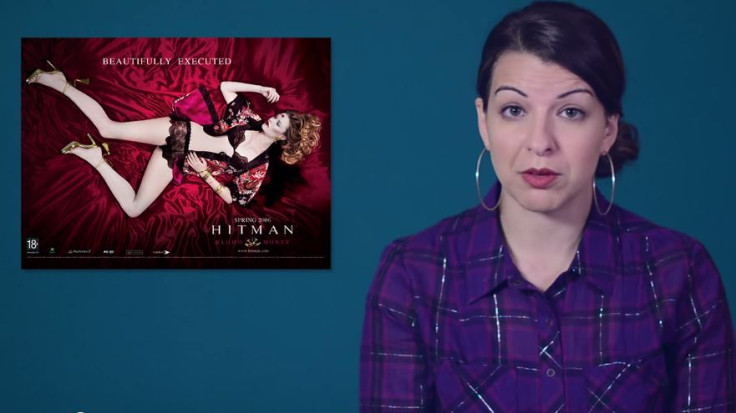GamerGate Debacle Exposes Cowardice in the Video Game Industry

I've been working in games for around three years, so something I'm used to is cowardice.
Games are violent, sexist, racist and homophobic, not because the people making them are untalented, but because the gaming industry is in general risk averse, and because we seem to live in a cynical world where people, it's assumed, are less likely to buy videogames if they treat marginalised social groups fairly.
Cowardice simply comes with the territory. Just as I know that 'The Big Franchise' will get 'A Sequel', I start to expect every videogame I play to be unquestioningly prejudiced. It's the business that i'm in. You keep going in the hope things will change.
But today, sat here, writing this, I have to wonder. I have to wonder whether the gaming industry really has the potential to be more sophisticated, or whether it is, and always will be, what it is.
Never have I seen such glaring cowardice from this industry than in the past two weeks. The GamerGate movement, an online groundswell of pissed-off kids that claims to want more "ethics" and "transparency" in the gaming media, has been attacking female developers and critics with threats of violence, rape, even murder, and the response from big developers - and publications - has been muted at best.
GamerGate, as in the Twitter hashtag which is being used as a gathering point for discussion, took off when an ex-boyfriend of Depression Quest co-creator Zoe Quinn revealed the developer had previously been in a relationship with a writer from gaming site Kotaku.
Despite Kotaku's assurance that there was never a conflict of interest, and that the implicated writer hadn't written anything about Quinn's games, people rallied for a greater standard of ethics from gaming journalists, targeting specifically the perceived too-close relationship between journalists and the developers that they cover.
But GamerGate encompasses another protest group, one which believes game criticism is becoming dumbed down and subjective due to the influence of feminism.
The Sarkeesian Affect
Women have always been marginalised by the gaming industry, or attacked merely for being a part of it. But since the launch of Anita Sarkeesian's Women Vs. Tropes in Videogames series, which highlight's various forms of sexism in games, the internet has seen an increasingly large, increasingly vocal anti-female presence.

It operates under the rubric that men are being pushed out of a pastime that once belonged to them, and that New Feminism is an excuse for writers to push personal agendas and falsely increase their popularity with the left-wing. The politics of this movement can be summed up by the online game "Beat Up Anita Sarkeesian", wherein players click their mouse to punch a likeness of Anita Sarkeesian in the face, in the process giving her black eyes and a bloodied nose.
Thus, GamerGate has become a conflation of two different protest groups, one confused, the other dangerous. The transparency and ethics argument might be warranted (Rob Florence famously tacked this in 2012 for Eurogamer) but the non-story about Zoe Quinn, which served as the flash point, has nothing to do with it.
The anti-feminist wing meanwhile is just madness – a bunch of threatened, ignorant young men lashing out against the betterment of society. If it weren't for the fact that GamerGaters have yet to file a concrete outline of what they mean by "ethics" and "transparency", and seem to believe that being generally angered is a suitable replacement for specific goals, I'd feel sorry for them, since their cause, no matter how loosely defined, has been hijacked by abusers.
Violent Threats
Sarkeesian recently had to cancel a lecture at Utah State University after the school received an anonymous email threatening to murder her and "write a manifesto in her blood." One of the threats to Sarkeesian specifically mentioned the GamerGate movement.
Brianna Wu, developer of puzzle game Revolution 60, was moved from her house by Boston police after a Twitter user, who claimed to know her address, said he would rape her, kill her, and then kill her children.
It's as if that a perceived conflict of interest, namely the story about Zoe Quinn, has been seized, in the typical style of confirmation bias, as an excuse for online commentators to exile women from the gaming industry. Despite the fact there was no breach of journalistic standard – despite Quinn's personal life being no-one's damn business – that incident and the call to arms that followed it are being used by people who harbour sexism as a brush to tar all women with.
It's another barrier of anonymity. Not only can hate-speakers credit their remarks to a Twitter pseudonym, they can now associate them to a vaporous online movement, more effectively smuggling their abuse past customs, as it were.
Industry response
But despite all of this, the game industry's response remains largely faint. Rock, Paper, Shotgun and Eurogamer both ran editorials back in early September, and as of yesterday, Kotaku had a story about the "StopGamerGate" hashtag rising in popularity. Other than that, the majority of protest writing has come from non-gaming publications, including Cracked, Jezebel, VICE and the New York Times.
As for the large videogame companies, barely anything. The Entertainment Software Association, which organises E3, a large annual gaming trade show held in Los Angeles, has issued a statement decrying threats of violence in the gaming industry, but other than that, game companies have failed to show solid support for the women who comprise them. In the words Nick Wingfield at the New York Times, these organisations have "tried to steer clear of the vitriol."
They're scared, scared of alienating a vocal, violent minority which they wrongly assume represents their demographic. Opposing GamerGate would mean confronting a group of young, uninformed men who have the time and lack of self-awareness to send death and rape threats via the internet.
And those men are precisely the types, it's presumed, who buy up all the violence, sexism, homophobia – if they're gone, who else will hoover up that swill?
The games industry isn't just afraid of burning bridges between itself and its main consumers. It's afraid that, if it protests GamerGate, it'll have to change the way it does business. Rockstar won't be able to make profitable crap like Grand Theft Auto and IGN won't be able to award it a 9 out of ten just because it's "fun".
For the games industry to stand up to GamerGate, it will also have to admit that it's been wrong all these years – it'll have to open itself up to accusations of hypocrisy, or even that it's been complicit in fostering the sexism this online hate group now espouses.
But that doesn't mean it shouldn't say something. This will sound naïve and a bit armchair anarchist, but there are things more important than numbers, or saving face. For one, if the GamerGaters and their militant sexism are allowed to continue unchallenged, those critics and creatives, who have worked hard to have games accepted as meaningful culture, even art, will see their efforts evaporate.
Anyone who isn't involved in gaming, but has read about GamerGate and the threats against Sarkeesian and Wu, will have gone away believing ever more firmly that videogames are the preoccupation of idiotic, sociopathic men, and that they should be quarantined inside bedrooms and specialist stores.
Likewise, the people within this industry who are genuinely trying to affect change will walk away. Jenn Frank and Mattie Brice, two outstanding critics, have already left gaming. There are plenty of others I'm sure who are convinced this industry isn't worth saving and are fine with watching it collapse in on itself. I can't blame them. I feel that way, too.
But even that, the responsibility game developers and reporters have to pioneer gaming as a worthwhile medium, means nothing compared to simple decent human behaviour. Forget the numbers, forget the industry, forget games - there are people being forced to leave their houses in fear that they and their children might be murdered, and the organisations with the most power to stop that happening are doing nothing.
Fundamentally, that's weak. When it's within your power to simply write a strong statement, put it online and send it to the right places, in an effort to stem violence against women, and you won't do it, that's pathetic – that's flagrant cowardice.
© Copyright IBTimes 2025. All rights reserved.






















